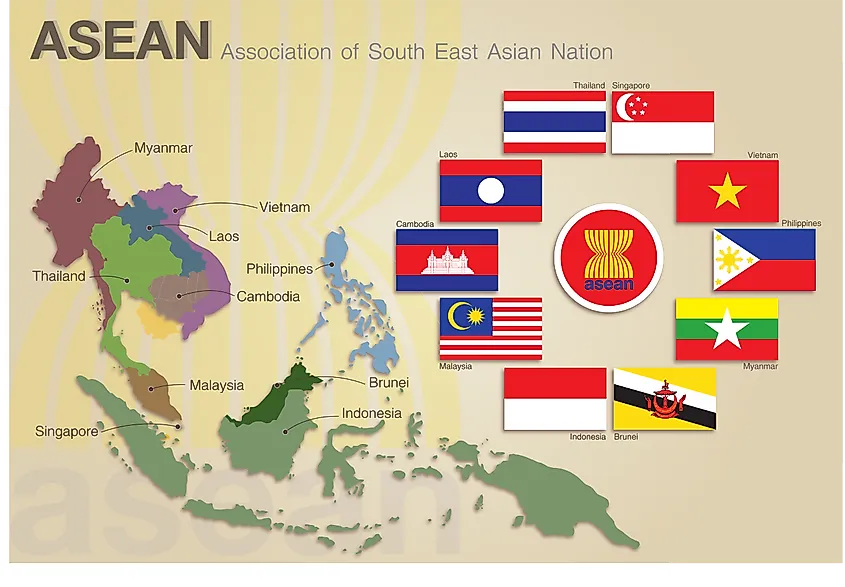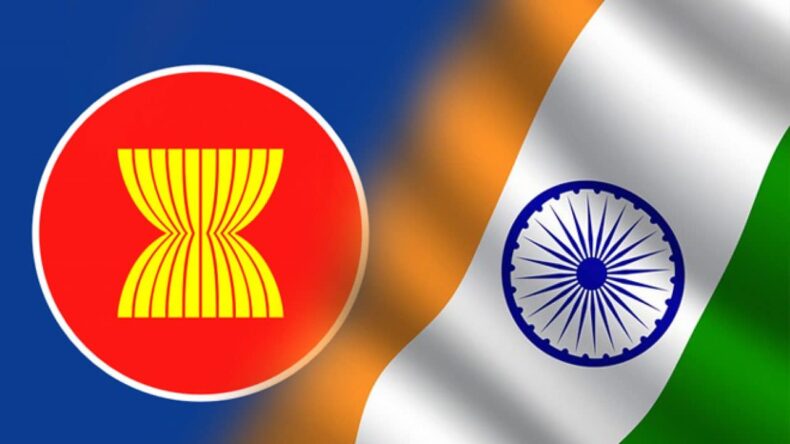Following the ASEAN-India Summit, Prime Minister Modi developed a 12-point strategy to improve relations with the ASEAN’s 10 members.
The development of a post-Covid-19 world order that adheres to regulations is necessary for the Asian century, and collective efforts are required to bolster the territorial integrity and sovereign rights of all nations, according to Prime Minister Narendra Modi on Thursday in response to China’s bold steps on boundary disputes.

Table of Contents
ASEAN-India Summit
The Prime Minister of India, Narendra Modi, commented at the ASEAN-India and East Asia Summit in Jakarta, Indonesia. Beijing has just published a “standard map” that shows large portions of other nations’ territory as part of its boundaries. In opposition to the Chinese map, there have been protests from Taiwan, Vietnam, Malaysia, Indonesia, Japan, India, and Japan.
In order to strengthen collaboration with the 10 countries of the Association of Southeast Asian Nations (ASEAN), Modi put up a 12-point strategy during the ASEAN-India Summit. The two countries share a common stake in safeguarding the free and open Indo-Pacific region and boosting the opinions of the Global South, Modi told the gathering. He said that India is passionate about cooperating with all ASEAN nations to accomplish these objectives.
“The 21st century is the century of Asia. This is our century. This requires the creation of a rules-based post-Covid world order and everyone’s effort for human welfare,” he said at the Asean-India Summit, speaking in Hindi. Modi was more pointed in his remarks at the East Asia Summit (EAS), which was attended by Chinese Premier Li Qiang. EAS groups ASEAN member states and eight dialogue partners, including Australia, China, Japan, Russia and the US.
Protecting Sovereignty And Territorial Integrity
In order to preserve the territorial integrity and sovereign rights of all nations, everyone’s dedication and concerted efforts are also required, according to Modi’s remarks to the EAS. “As I’ve stated previously, now is not a time for war. The only way to find an agreement is via discussion and negotiations, he said, speaking once again in Hindi.
In addition, Modi reminded the EAS that in an unpredictable world, multilateral cooperation and a rules-driven global order are crucial for addressing problems like terrorism, extremism, and geopolitical disputes.
“The Indo-Pacific region needs to be one where all nations are treated fairly under international law, including UNCLOS, where there is autonomy in movement and overflight, and where there is unrestricted legal trade that benefits all parties,” he said.
India Vs China: Will The ‘Standard Map’ Ruin Bilateral Relations?
The United Nations Convention on the Law of the Sea, or UNCLOS, or the South China Sea Code of Conduct, which is now being discussed by China and the ASEAN nations, ought to be operational and in conformity with UNCLOS, Modi continued. The goals of nations that are not actively engaged in the debates should also be taken into account, he continued.
He said the EAS has a “pivotal function as a fundamental fostering trust forum in Asia” and is the sole leaders-led framework for collaboration on strategic matters in the Indo-Pacific.
Due to a protracted military confrontation on the Line of Actual Control (LAC), bilateral ties between India and China are presently at a six-decade low. The G20 Summit will be hosted by India this weekend without China’s President Xi Jinping, who has chosen to abstain. Beijing is expected to be represented at the gathering by Premier Li.
The inclusion of Aksai Chin and Arunachal Pradesh on China’s “standard map” drew a stern objection from the Indian side, who said that this would “only exacerbate the resolution of the frontier question.”
Modi’s Stance On The Issue
At both meetings, Modi stressed the significance of ASEAN to India’s Act East strategy and Indo-Pacific vision. A multifaceted world is something that India and the 10 Asean governments both believe in, as well as a common ideology, stability, economic growth, history and geography.
Modi brought up India’s stance towards Myanmar as well, reminding the EAS that it respects ASEAN viewpoints while promoting a connection between India and ASEAN and maintaining security and tranquillity along the borders.
Modi’s 12-point strategy for enhancing ASEAN-India collaboration spans topics including connectivity, digital public infrastructure (DPI), and counterterrorism. It plans to build commercial ties between India, Southeast Asia, West Asia, and Europe as well as multimodal connectivity.
Modi made the announcement that India would establish an embassy in the capital of Timor-Leste, Dili, at the ASEAN-India Summit. Timor-Leste’s prime minister, Xanana Gusmo, was a guest at the summit.
The two meetings, which were held consecutively by the host nation Indonesia at India’s insistence since New Delhi will be hosting the G20 Summit over the weekend, marked the conclusion of Modi’s short visit to Jakarta. On the sidelines of the summits, Modi did not conduct any bilateral encounters.













